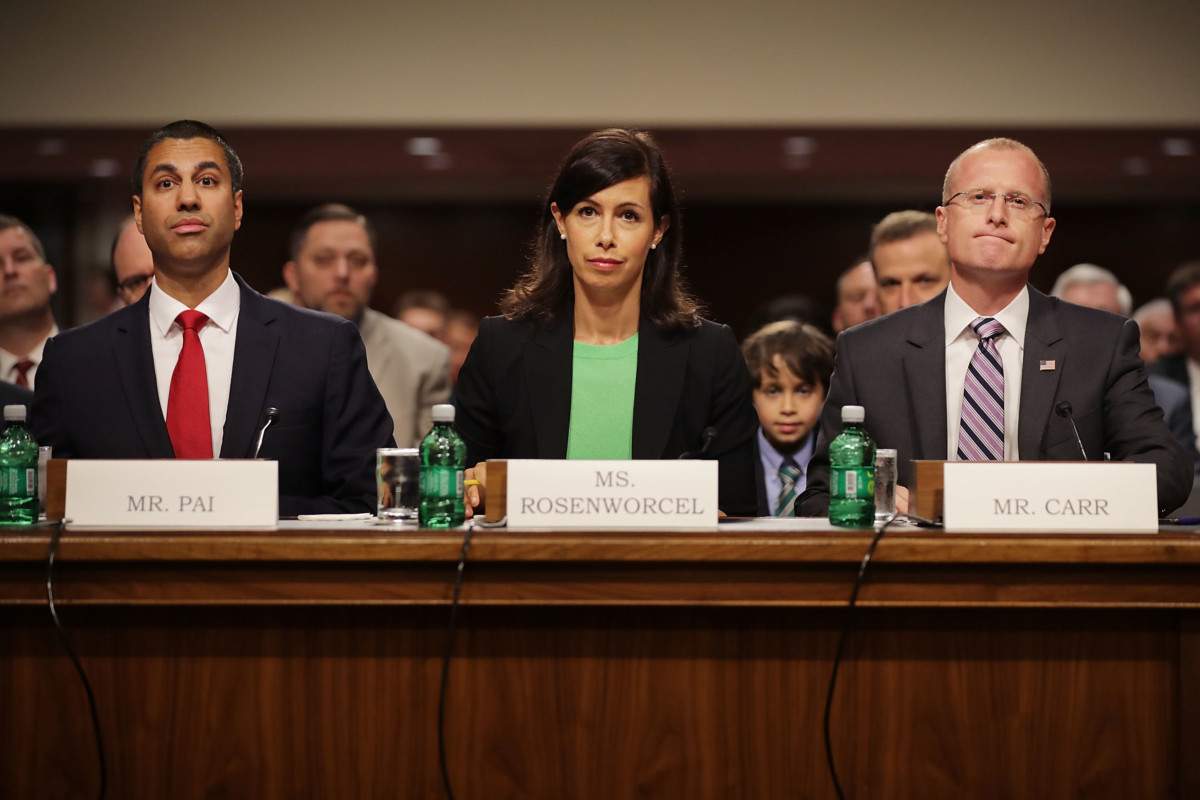Partisan-tinged debates over net neutrality rules and issues with broader consensus like rural broadband deployment dominated a Senate Commerce Committee hearing Wednesday to consider nominations for three positions on the Federal Communications Commission.
Lawmakers queried Jessica Rosenworcel, a Democrat who previously served on the commission, as well as FCC General Counsel Brendan Carr and Chairman Ajit Pai. Pai was nominated for a second five-year term on the panel in March.
The three nominees were largely unanimous on measures to expedite rural broadband. That includes “dig once” policies, which would require construction workers to install conduits for fiber-optic cable when preparing infrastructure such as roads. The policies aim to reduce cost and limit wait times for installing fiber in different municipalities.
“I think it would be helpful for ‘dig once’ policies and similar policies to be the law of the land,” Pai told Sen. Amy Klobuchar, a Minnesota Democrat who also put the question to the other two nominees about how to expedite rural broadband deployment.
“The agency, working with local jurisdictions, should try to come up with a model code — one that includes policies like ‘dig once,’” Rosenworcel said. She added that there should be incentives built in for local communities to adopt the model.
Senators also pressed the three on the need for accurate coverage maps so that funds issued to companies to build out their infrastructure are actually targeted to the right places.
“I would hope to get your commitment that the commission will work to ensure that mapping data used at the FCC accurately accounts for on-the-ground mobile coverage,” said Sen. Cory Gardner (R-Colo.).
The nominees affirmed they are committed to working toward ensuring accurate data coverage moving forward. Other pledges were harder to come by.
While Rosenworcel, Carr and Pai all agreed on the importance of the E-rate program, which uses public dollars to expand broadband coverage in schools, they initially refrained from an outright promise not to cut its funding. Sen. Ed Markey (D-Mass.) had to ask Rosenworcel a second time before she explicitly said she would not reduce the funding for E-rate.
Markey also pressed Pai to provide evidence that investment in broadband infrastructure was down as a result of the 2015 Open Internet Order, as Pai has argued in promoting his plan to undo the order’s net neutrality rules.
“That’s part of the reason we’re testing this proposition within the context of the notice of proposed rulemaking,” Pai responded. “Some have suggested the FCC simply issue a declaratory ruling saying that the facts and the law are so and that’s the way it’s going to be, but we wanted to test this proposition in an open and public process.”
Sen. Bill Nelson (D-Fla.), the committee’s ranking member, was skeptical of Carr, who served as legal adviser to Pai for three years, in particular questioning his ability to act independently.
“It is hard to recall a similar situation where someone was nominated to serve at the commission alongside, rather than to follow, their current boss,” Nelson said, pressing Carr to give a specific example of an instance where he disagreed with Pai.
“Going forward, I’ll make my own decisions; I’ll call it the way I see it,” Carr said. “I think my record shows that I’m not a shrinking violet.”
Nelson called that response “not confidence-building.”
Correction: A previous version of this story misstated the date of the confirmation hearing.

